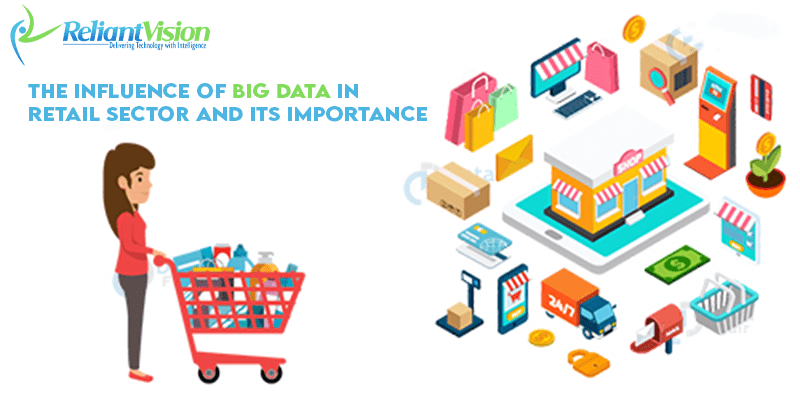The Retail Sector faces the fiercest of competition when compared with other sectors. To stay ahead companies in the retail segment strive to differentiate themselves by providing different products and services to attract as many customers or consumers as possible.
Usually, retailers are customer-focused which is evident in the commitment and enthusiasm that employees working in the retail industry show when attending to customers. The employees are trained to be attentive and polite and are encouraged to acquire deep knowledge so that they can serve their customer needs. Feedback from customers helps in defining future marketing strategies and store operations that impact the overall supply chain management.
The emergence of Big Data as a Game Changer in the Retail Sector-
The emergence of Big Data in recent years has enhanced the efficiency of retailers in the last few years while also increasing competitions. In hopes to get ahead of competition, retailers are using Big Data analytics to understand what customers wants and how they can fulfill their needs.
Big Data analytics in retail sector is enabling companies to create customer recommendations based on their purchase history thereby resulting in personalized shopping experiences and improved customer service. According to the McKinsey, implementation of Big Data Analytics in retail chain is improving the operating margins of the retail firms by around 60%.
How Big Data is revolutionizing the retail industry – An Overview
Big Data is playing an important role in building accurate sales strategies in the retail industry. Big Data is being used at every stage of the retail process to understand customer behavior, predict demand and optimize pricing. The following uses or benefits of Big Data Analytics is being felt in the retail industry such as-
- Price Optimization
Big Data analytics is helping in achieving real-time pricing to adjust in-store prices for the customers. Here retailers try to analyze the effects of change in prices of the various products that helps them in understanding the impact of prices on sales, customers purchasing decision, product selection etc. Big Data analytics helps retailers estimate the optimal price, which will increase the sales thereby generating maximum revenues.
- Personalizing customer experience
For retailers Big Data is creating opportunities to provide better customer experiences. For instance, analyzing the customer’s data help in customizing the discounts/offers for the focused customers. This data may be related to purchase history, search history, average bill value, and frequency of visits to retail stores etc. Customized SMSs and emails related to offers/discounts can then be generated through Big Data analytics.
- Forecasting Demand
Big Data is being used to extract value from data such as through predictive analysis to anticipate the purchasing trends thereby standing out from the competition. These trends are not only concerned with volume to be stored and the time but are also about changes in the habits and preferences of the target audience. Retail forecasting and retail projections are being used to properly allocate resources effectively throughout the year.
Big Data is also playing a key role in helping determine when prices should be dropped known as “mark down optimization” backed by predictive approach to determine the rise and fall of demand for a product or products.
The Big Data analytics in retail market is expected to reach USD 13.26 billion by the end of 2026 registering a CAGR of 21.20% during the forecast period (2021-26) as per the Mordor Intelligence market review. Merchandising and supply chain analytics segment is expected to hold a significant share in Big Data analytics in the retail sector.
Summary-
It can be concluded that Big Data has made it extremely easy for the retail sector to gain an insight into the conscience of the customers although there is a debate raging over the ethics of using personal data with the fact remaining that not using it will cost the retailer heavily.

